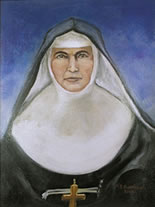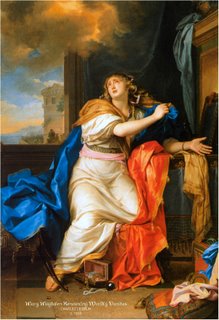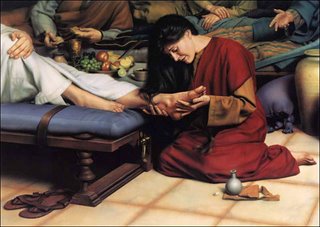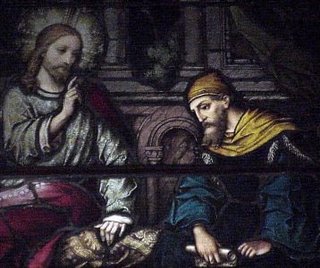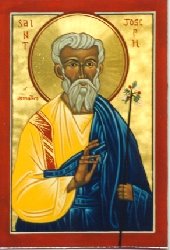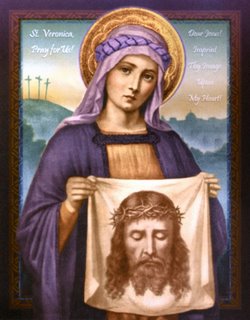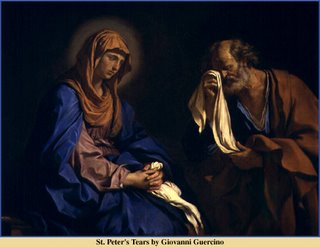
A Reflection
Like many men Peter wanted to be seen as strong, courageous, tough and resolute. He was all these things yet paradoxically he was also, weak, cowardly, indecisive Peter was essentially the ultimate people pleaser, yet out of the twelve it was Peter who was chosen to become the leader.
When we look at the life of this great Apostle we must recognise that during his life span Peter underwent a metamorphosis that shook him to his very core and radically transformed him into a man of both courage and substance while still remaining the same Peter who would at times revert back to the attraction of a longing to be liked by the multitudes.
In order to recognise the fundamental changes that transpired within the heart and soul of Peter we must look at two events in his life which began a revolution within his very depths. The Peter that followed Jesus, listened to Jesus, lived with Jesus, ate with Jesus and who was befriended by Jesus, and who came to love Jesus for as Peter exclaimed when questioned, "he asked his disciples, "Who do people say that the Son of Man is?" They replied, "Some say John the Baptist, others Elijah, still others Jeremiah or one of the prophets." He said to them, "But who do you say that I am?" Simon Peter said in reply, "You are the Messiah, the Son of the living God." The Peter that could speak with such strength and conviction was spoken from a heart that had not yet been tested. During this time spent with Jesus, Peter was full of bravado and bluster a man more comfortable with action rather than prayer, a man intent upon proving his strength to all who accompanied him, including Jesus himself!
This was a man among men and he thrived in the company of his fellow Apostles and his friend Jesus, who intrigued but also baffled him, for Peter loved the commotion and roar of the crowds, he loved to be the centre of attention and the thrills that public life brought, yet so many times Jesus would insist that the mysteries he had shared with them must remain a secret. Peter was not given to thinking about things too much as the days were short and there was work to be done, after all he had spent his life as a fishermen, he knew what hard work meant. Deep thinking only left Peter perplexed, confused and frustrated, he preferred to speak less and do more, an action man in the true sense of the word.
When Jesus spoke about prayer, Peter listened with one ear, as he concentrated on more important issues, such as where they would sleep that night, what would they eat for the day and how was his family coping?..Should he return to his family or continue this journey with Jesus? All these things took much effort how could Peter find time to waste in prayer? There was too much to do! Even though for a short time Peter returned to his family he could not forget this man Jesus and his message...he also could not forget the words Jesus spoke to him which resonated in his heart and soul,"Come after me, and I will make you fishers of men." Peter was not a fanciful man but he could no longer ignore these words which held the meaning to his existence and is the Word of life.
As Jesus traveled within his Ministry so did Peter, who followed in the Master's footsteps while keeping an eye out for anyone who may cause trouble, for was not Peter the strong one? He alone would make sure that nothing happened to Jesus for Peter was a man of action, when Peter roared everyone jumped, he was proud of his fierce courage. Though Peter loved to be seen as strong and forceful, yet the words Jesus spoke slowly took ground as Jesus spoke of the way to the Heavenly Kingdom with words Peter had never expected to hear, a way of living that puzzled him as Jesus spoke to the crowds, "Blessed are the poor in spirit, for theirs is the kingdom of heaven. Blessed are they who mourn, for they will be comforted. Blessed are the meek, for they will inherit the land..." What was Peter to make of this kind of language and how could anyone live this message in the daily trials of life? These questions and more reverberated within the soul of Peter for one of Peter's great blessings was an insatiable curiosity a longing to know the Truth....at all costs.
Because Peter believed that through Jesus one found eternal life, he was determined to ensure that nothing would happen to his beloved friend. So Peter would leave the praying to Jesus while he, a man of great physical strength would take the necessary action to protect Jesus and his fellow disciples. Nothing was going to happen to Jesus or his friends on Peters watch, he was proud of his strength for the many years he had toiled as a fisherman hauling on board vast quantities of fish caught within his net, Peter had the strength and disposition of an ox!
Peter was most comfortable on the sea, where he had learned his craft to perfection, so he was in his element when he, and the other disciples decided to cross the lake in a fishing boat. It was not long before a storm blew up and the disciples shivered in terror as the waves washed over them. Peter may have been able to earn his living by the sea but he could not tame it, so all the Apostles were amazed when they saw Jesus approach them, but was it Jesus or a ghost? With his usual bluster Peter took charge and asked Jesus to command him to walk on the water and meet him, which Jesus did, but then as the Word reveals, "Come." Peter got out of the boat and began to walk on the water toward Jesus. But when he saw how (strong) the wind was he became frightened; and, beginning to sink, he cried out, "Lord, save me!" Peter once again had relied on his own strength, he had not yet realised that his strength was totally reliant upon the Lord, he would soon learn this lesson in the most painful way.
When we look at the life of Peter it reveals a man both courageous yet at times terrified, a man of action, yet when faced with opposition he flees. A man of strength yet when it was called upon his weakness overcame him, a man who promises much yet failed to deliver what he had boasted, that he would stand beside Jesus while all others fled. The man who had no time for prayer soon found he had placed his 'faith' in himself.
Jesus had warned all his disciples what lay ahead of him, yet when the time came for his betrayal, the disciples were in disarray as Peter who had slept when Jesus had most needed him took his sword out and cut the ear off the slave of the High Priest, once again Peter chose action despite the message that Jesus had preached, had he not learned anything from his Master?
Once Jesus was arrested, and the disciples had fled the scene, Peter was left to himself, but still he could not leave Jesus entirely alone so he watched Jesus from a safe distance or so he thought. Peter was an emotional mess, a confused and frightened man, as thoughts raced through his head...what could one man do against such a horde? Everything Peter had depended upon now deserted him, when questioned by the crowds Peter denied ever knowing Jesus not just once but three times, and once again the words of Jesus resonated within Peters heart, "Amen, I say to you, this very night before the cock crows, you will deny me three times."
Peter stood naked before his own perception of himself, he could barely tolerate his own company, yet still he kept his eye on Jesus as he kept his distance and a well spring of self disgust rose up in him, there was no hiding now. As Peter watched in the safety of the crowds as the fire warmed those around him yet the chillness within Peter's tormented heart found no warmth.
As the crowds gathered Peter was a man torn apart, a gut wrenching torment swept through him, he so loved Jesus, yet he had denied him..still he waited.
There but for a moment stood Jesus, bloodied, ragged, spittle running down his face, as he turned and looked upon Peter. A trembling Peter could not help himself, he gazed upwards towards Jesus where their eyes met.
The look that broke Peter's heart, that shattered forever his own belief in himself, that brought Peter to breaking point and to his knees. Peter found no condemnation in the Lords eyes, he found no censure...what Peter found was infinite love and mercy, when what he longed for was to receive what he deserved, instead he found... compassionate forgiveness.
Peter was a broken man, but his torment was not over as the tears gushed forth...he still had to face the mother of Jesus. This most holy of mothers, yet he had failed to keep any of his empty promises, how could he face this most holy and courageous of mothers? Peter looked within and found himself empty.
These were the darkest hours of Peter's life as he wept bitter tears so much so that deep grooves would remain on his face to remind him of his own failures and of God's greatness. What would he say to the mother of Jesus, how could he face her who had suffered such a grievous wound? What could he say? Peter's bluster had left him.
During these long and lonely hours as the disciples fled in every direction, more words came to Peter's heart, "Simon, Simon, behold Satan has demanded to sift all of you like wheat, but I have prayed that your own faith may not fail; and once you have turned back, you must strengthen your brothers." Despite not living up to his promises Peter came to understand that it is God's Promise that matters, slowly he re-gathered his strength as he now relied upon the Word spoken by Jesus. In these painful hours he trusted in himself no longer and instead trusted God as he began to understand the power of prayer.
As the disciples gathered in their hiding place, where a stunned Mary Magdalene informed the disciples that Jesus was risen, still many of them scoffed at such a thought...Peter did not, he fled to the empty tomb, no longer fearful of being seen...Peter ran and found the tomb empty.
The day that Jesus was Crucified and died was the day that Peter began to live the Gospel message, no longer relying on his own strength but instead Peter kept his eyes on his Lord and Him Crucified!
We can only imagine the humiliating experience which faced Peter when he met up with his brother disciples, having failed to live up to his former boasts. We can only imagine the words shared between Peter and the mother of Jesus, when he also had to face her with his cowardice....Peter learnt the meaning of humility and then lived it.
There would be many more challenges that Peter would face as he continually confronted his indecisive nature, his need to please those around him.....Till he met one man who would join him in the mission entrusted to Peter, to spread the Good News to all people...that man was known as....Paul.

Peace of Christ to ALL
Copyright © 2006 Marie Smith. All rights reserved.


